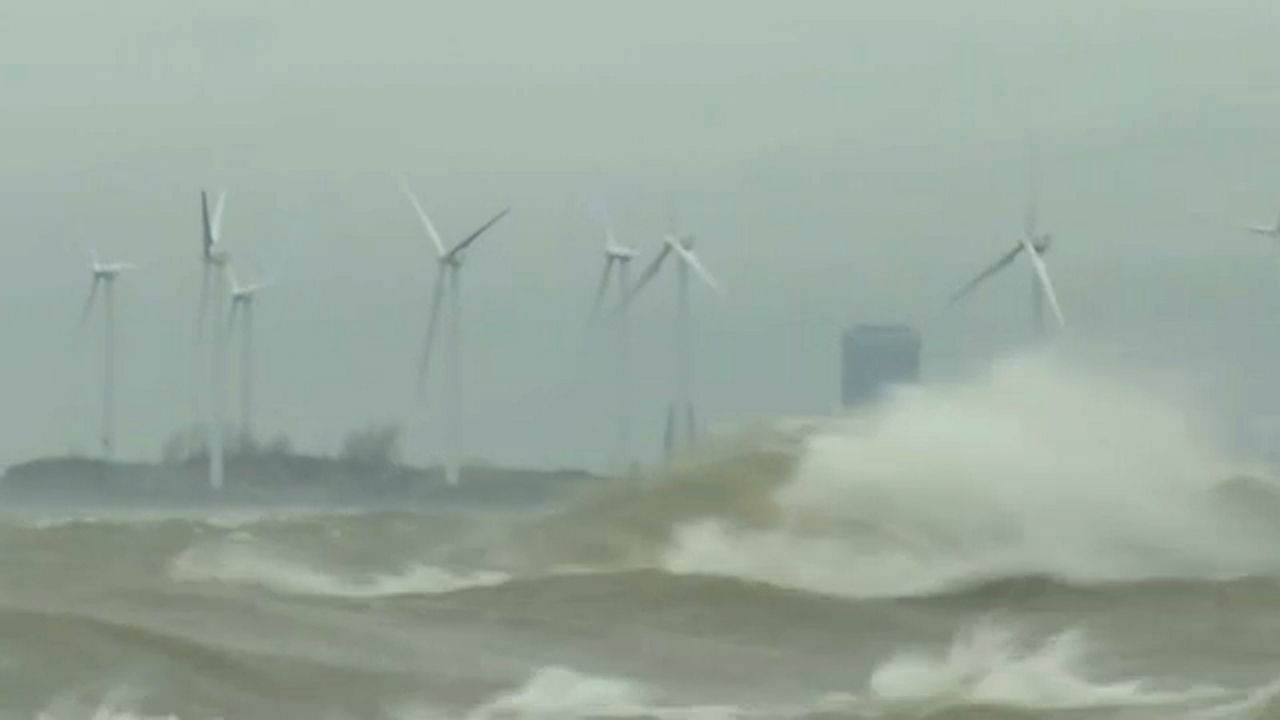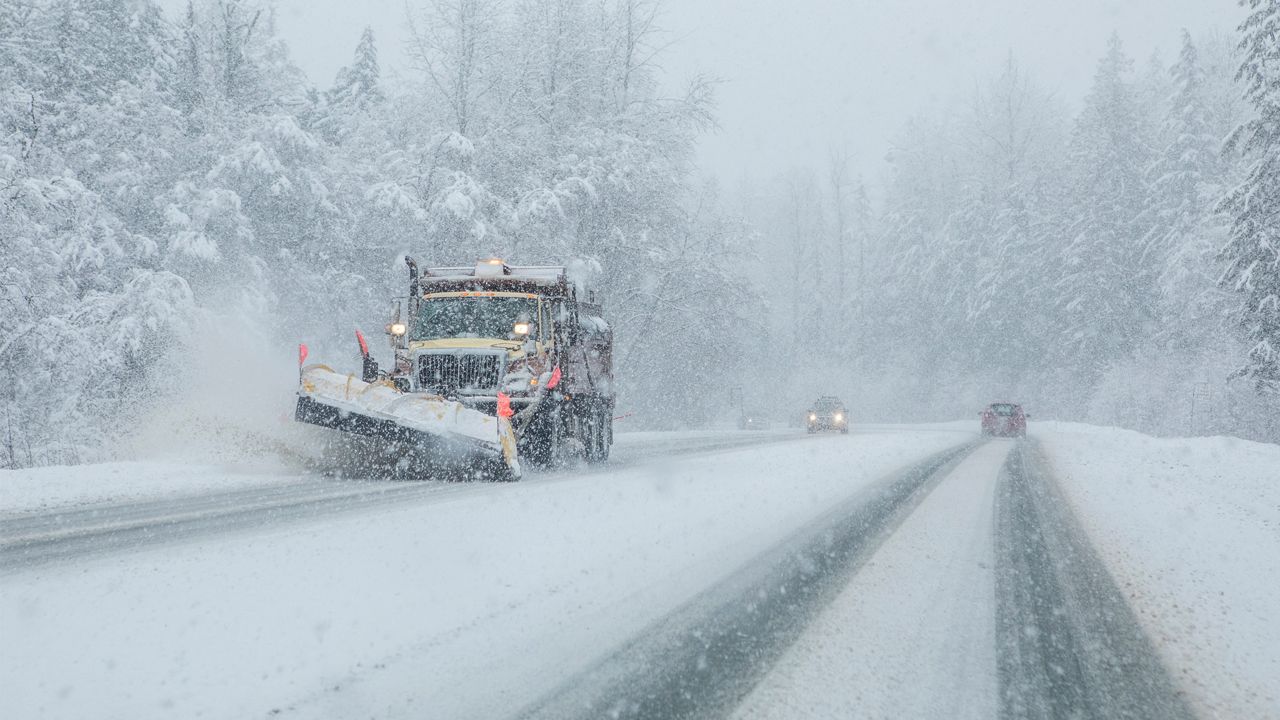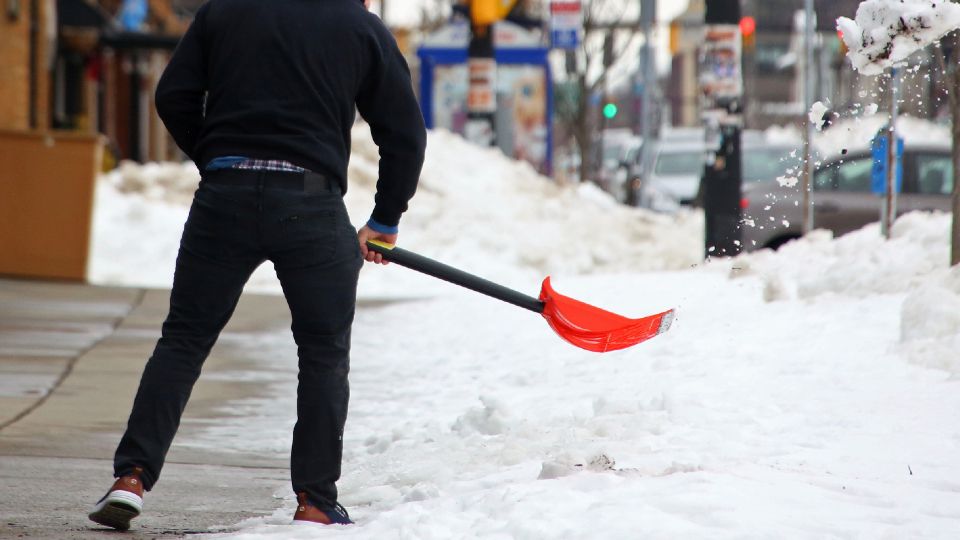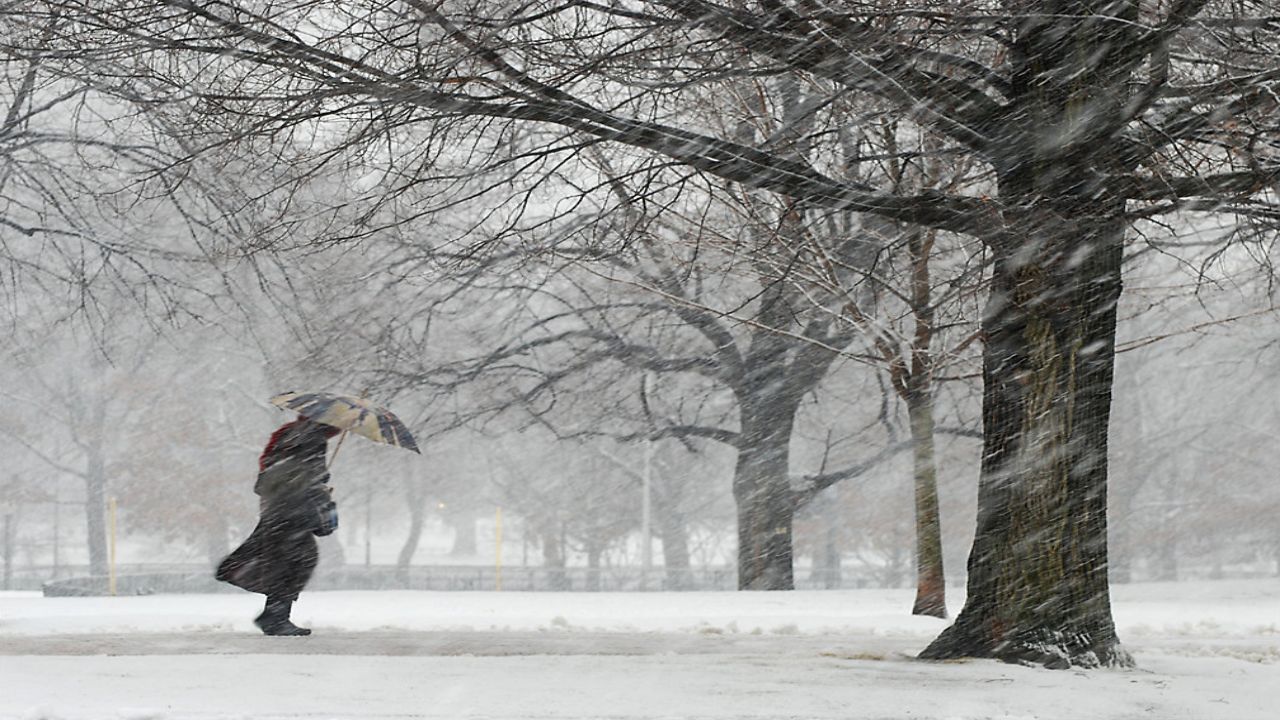While our weather is looking fairly uneventful over the next couple weeks, we are entering the traditional seiche season for Lake Erie.
Lake Erie, along with all the Great Lakes, have set high water marks the past few years. That, combined with strong storm systems and high wind events, has resulted in some of the largest seiche events on record. The combo of a seiche and high waves has resulted in tremendous shoreline erosion and property damage.
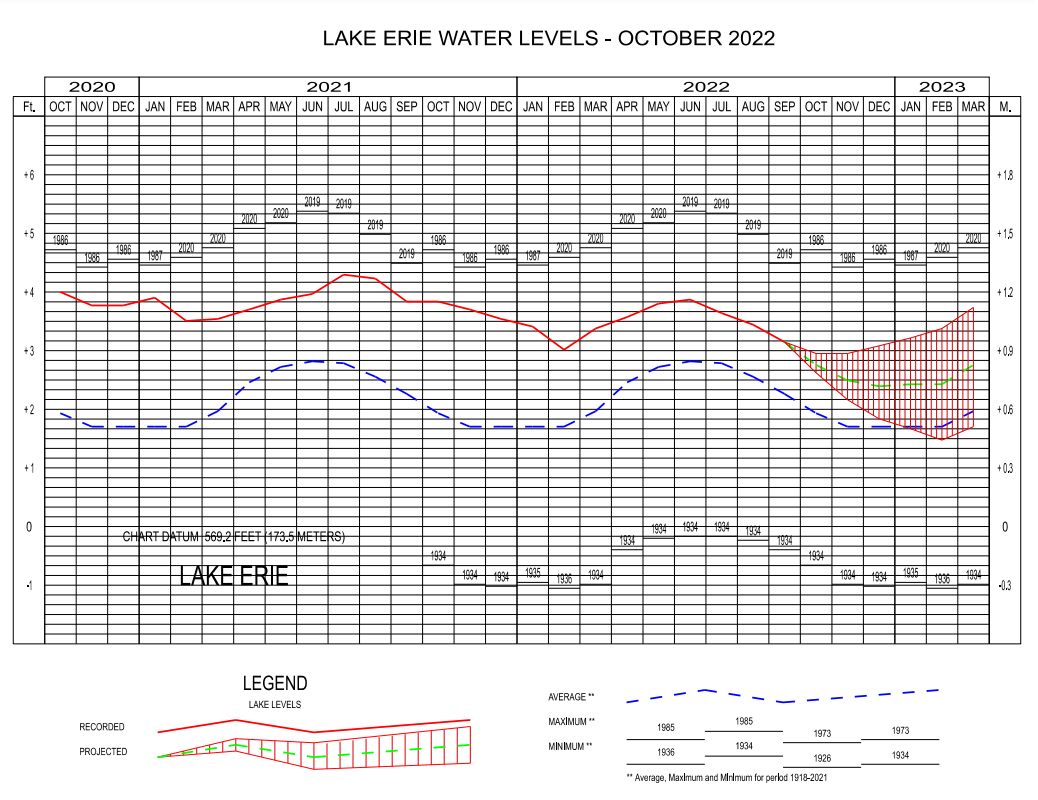
Luckily, the overall dry pattern we’ve seen this summer and even into fall has allowed the Great Lakes to see their water levels drop from those record levels.
As you can see in the chart below, every Great Lake basin has seen below-average precipitation. Lake Erie has only gotten about 68% of its average September precipitation.
Over the past 12 months, we’ve had a drier-than-average pattern, with Lake Erie seeing only 89% of its average precipitation during that time.
Most of Lake Erie's high water records were set in 2019 and 2020. That high water and a few seiche events resulted in tremendous shoreline erosion. During Nov. 2020, while the lake was at historic levels, a monster seiche produced tremendous property damage for the residents of Hoover Beach and Grandview Bay.
I saw tremendous erosion and lost my stairs during one of these events.
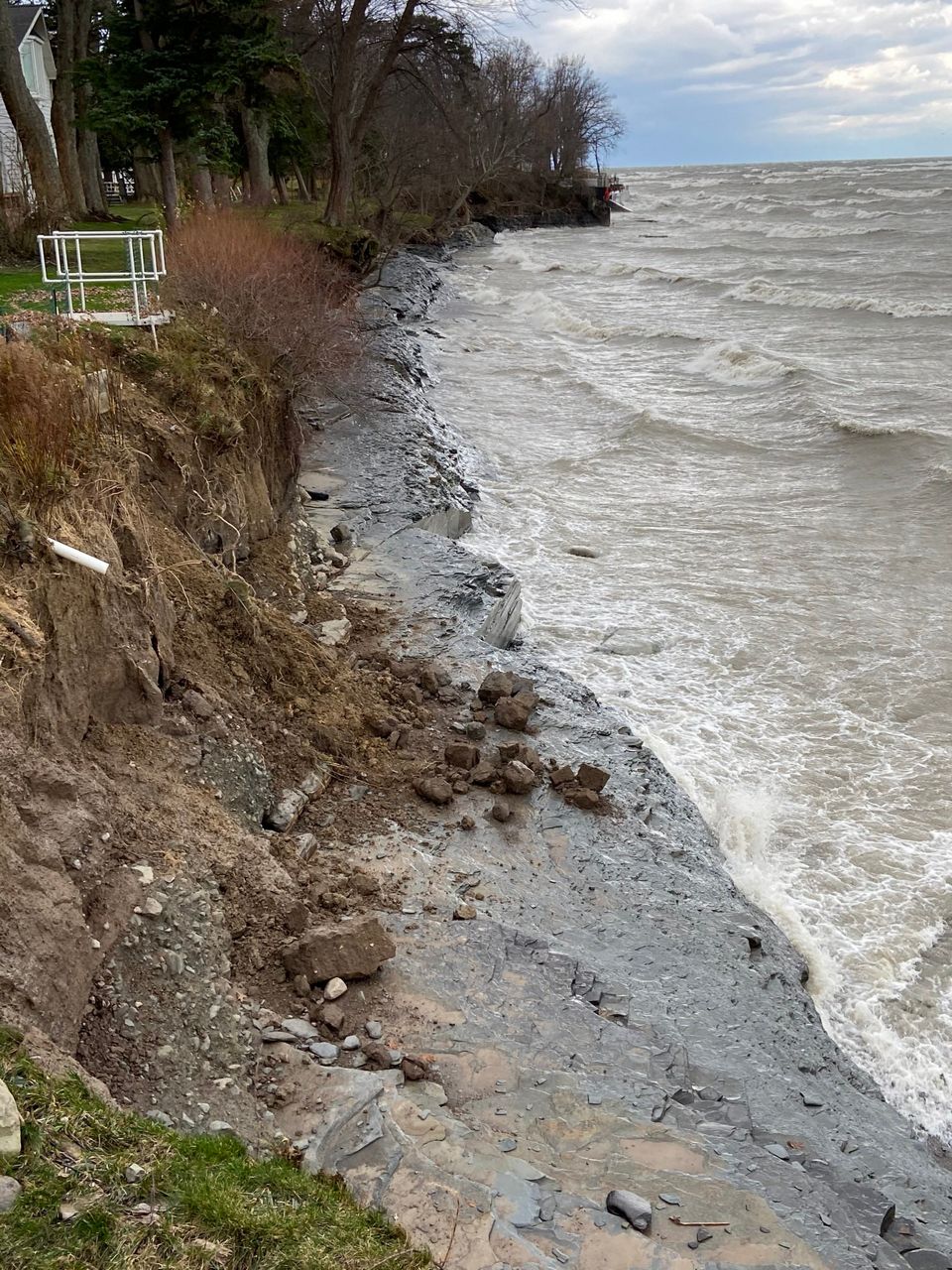
Thankfully, compared to those years and even last year, Lake Erie is now much lower. It's 14 inches lower now than last October.
Some forecasts even bring in a slight chance for water levels to dip to below-average levels sometime in early 2023. That is only a slight chance, though, but it is a good sign for the shoreline residents that lake is much lower now compared to recent years.

While we still can’t rule out an epic seiche event sometime over the next couple months, the fact that the lake is lower brings a lesser chance for the kind of erosion and property damage we saw the past few years.
Our team of meteorologists dives deep into the science of weather and breaks down timely weather data and information. To view more weather and climate stories, check out our weather blogs section.





